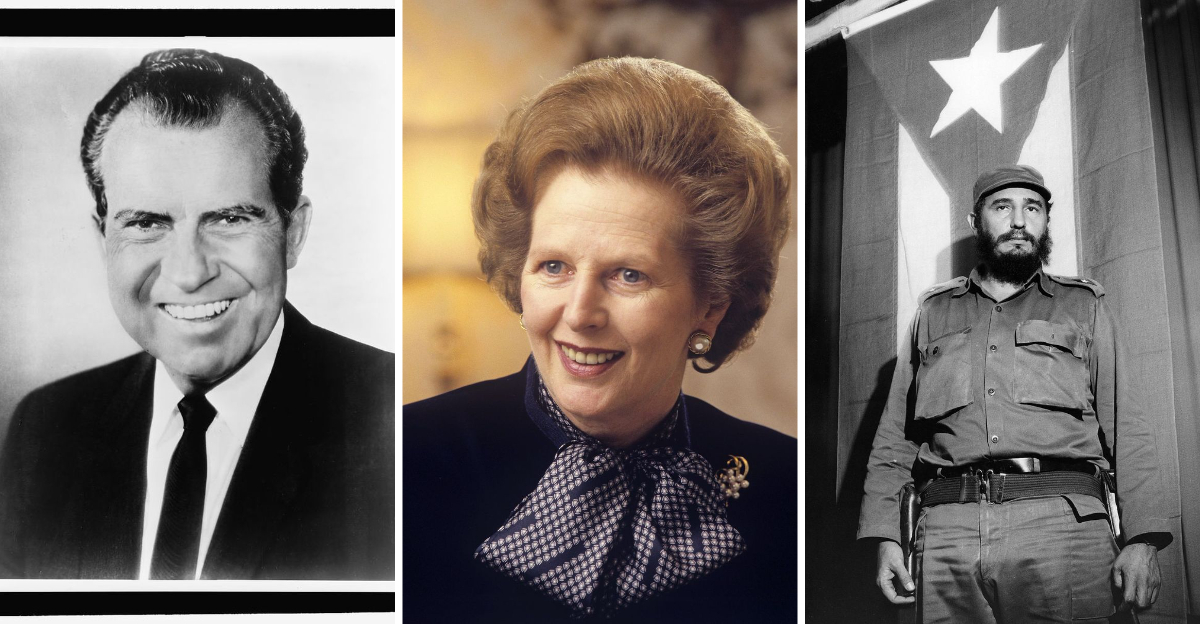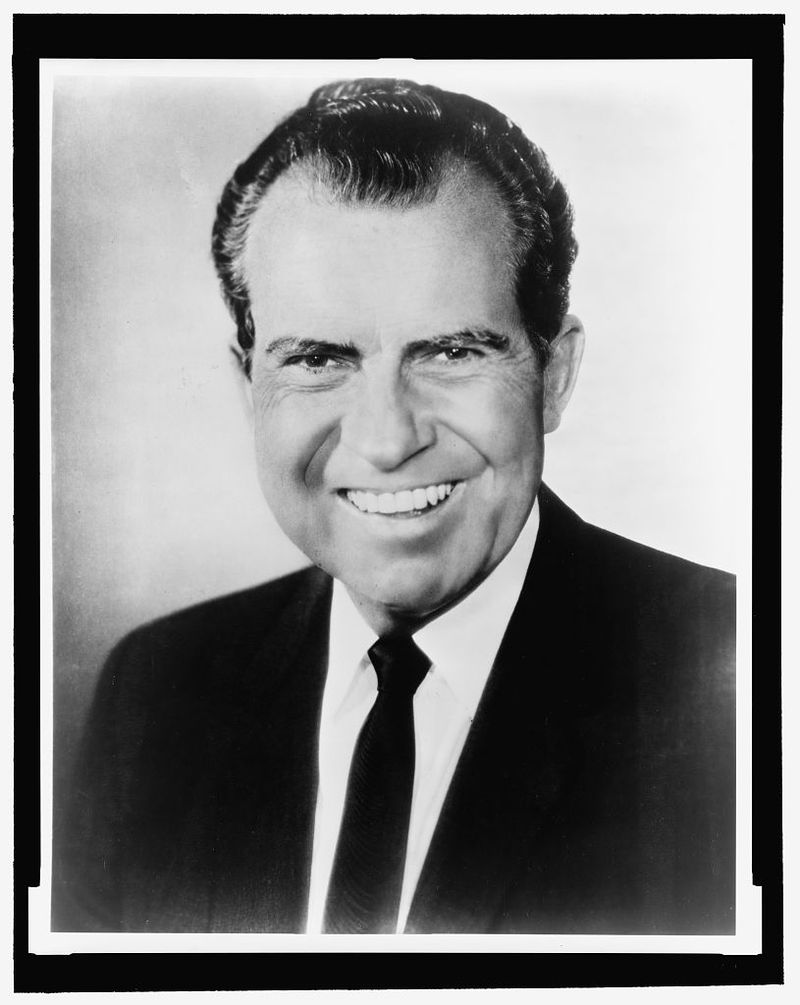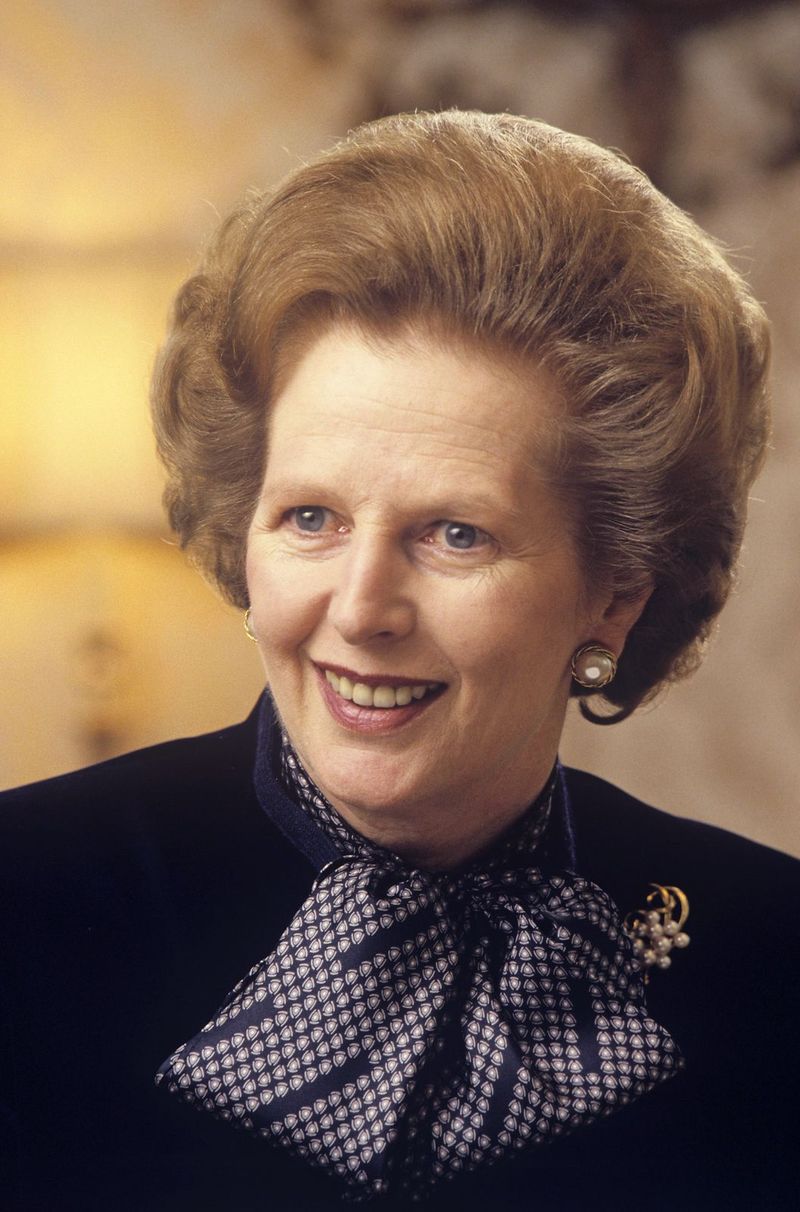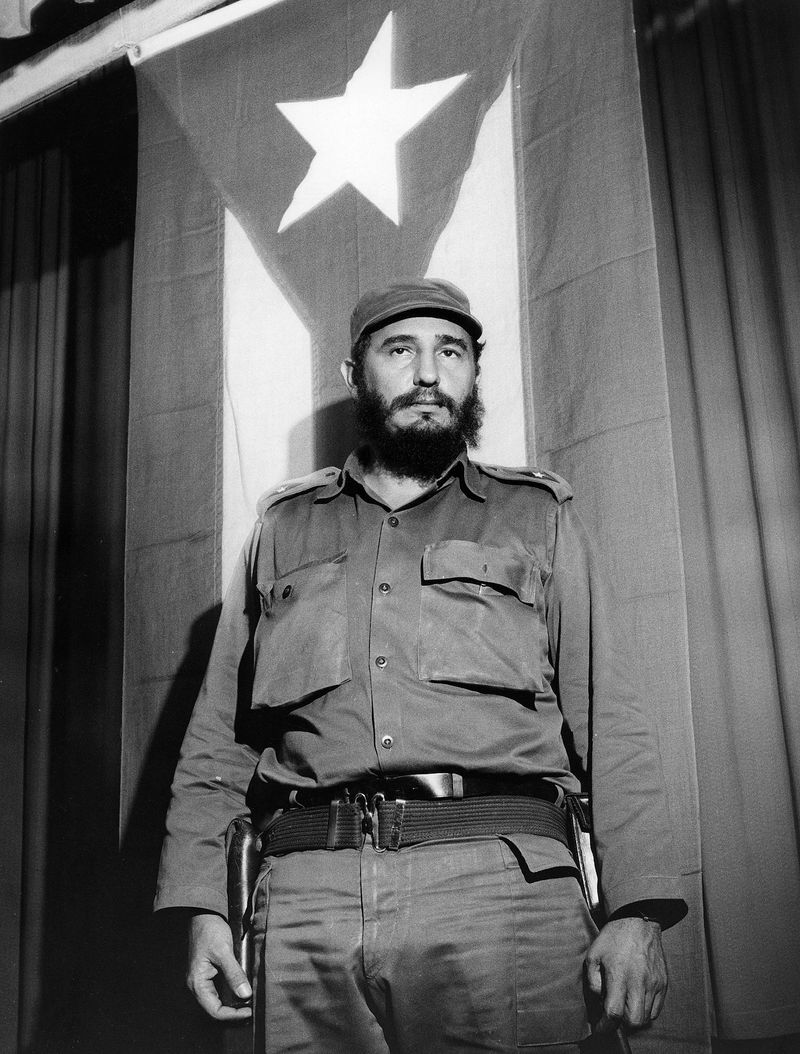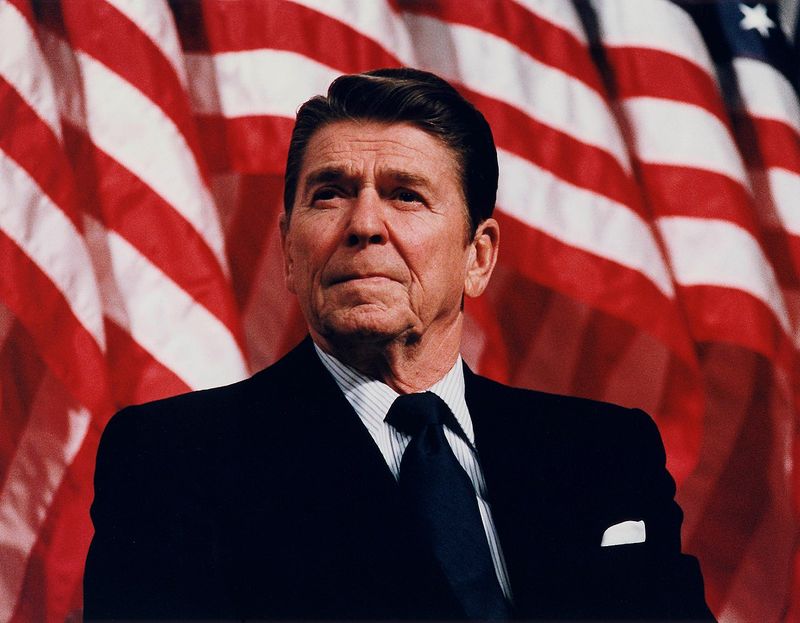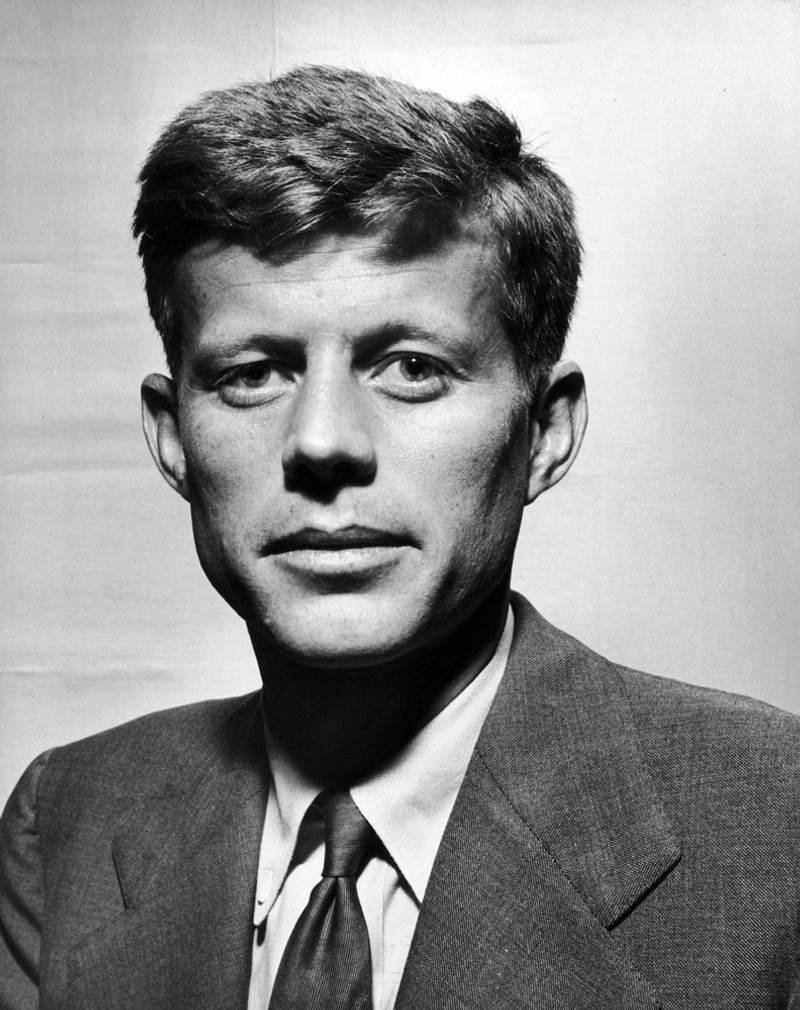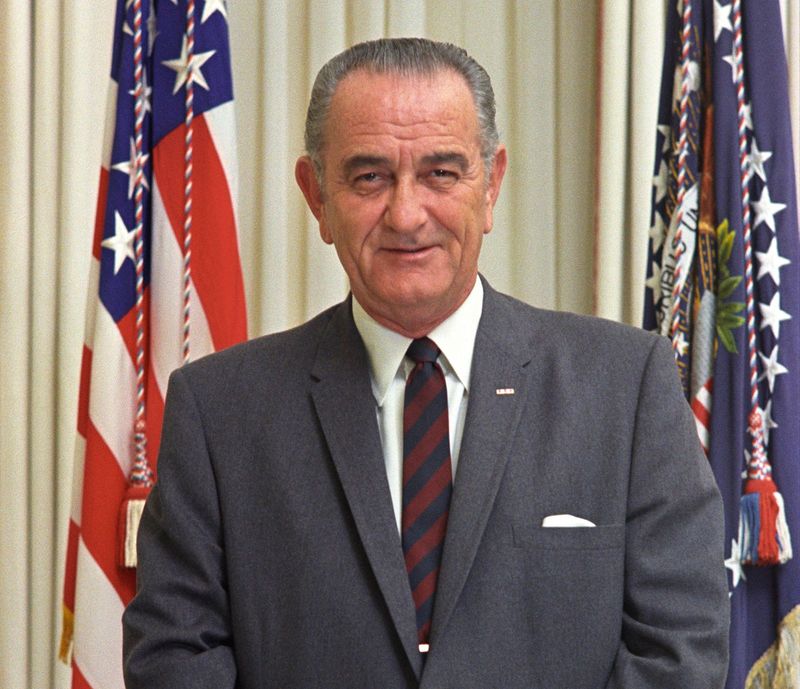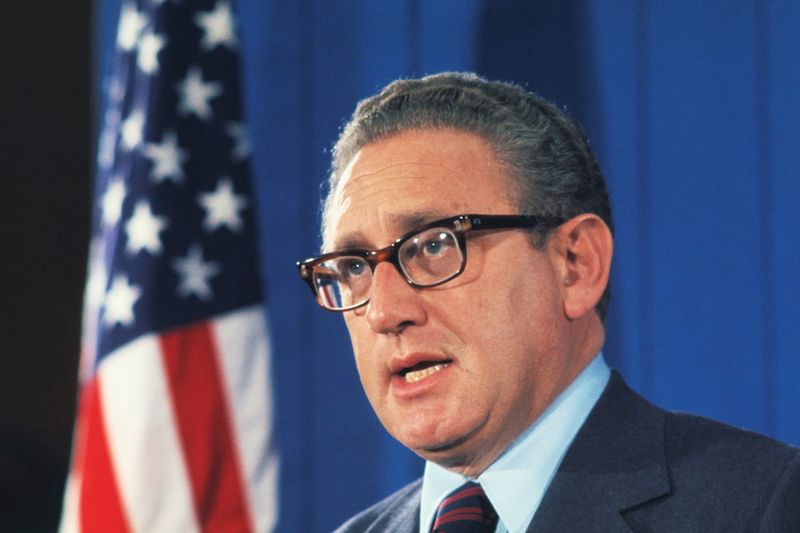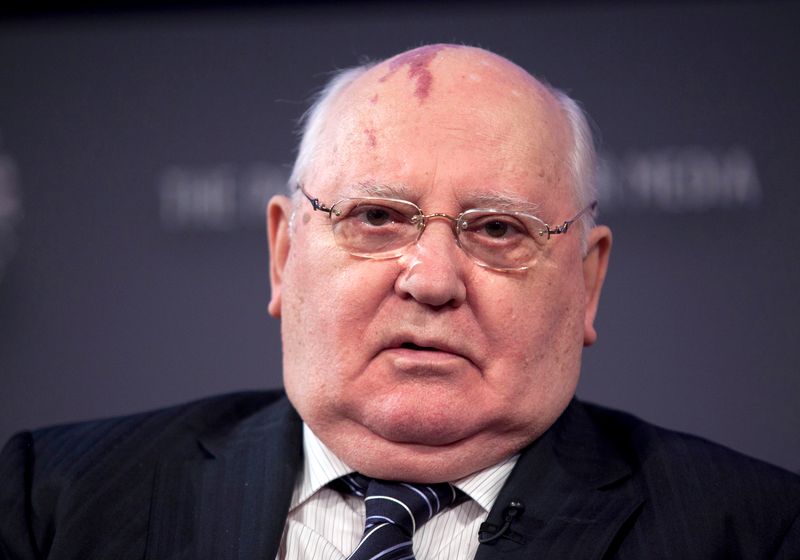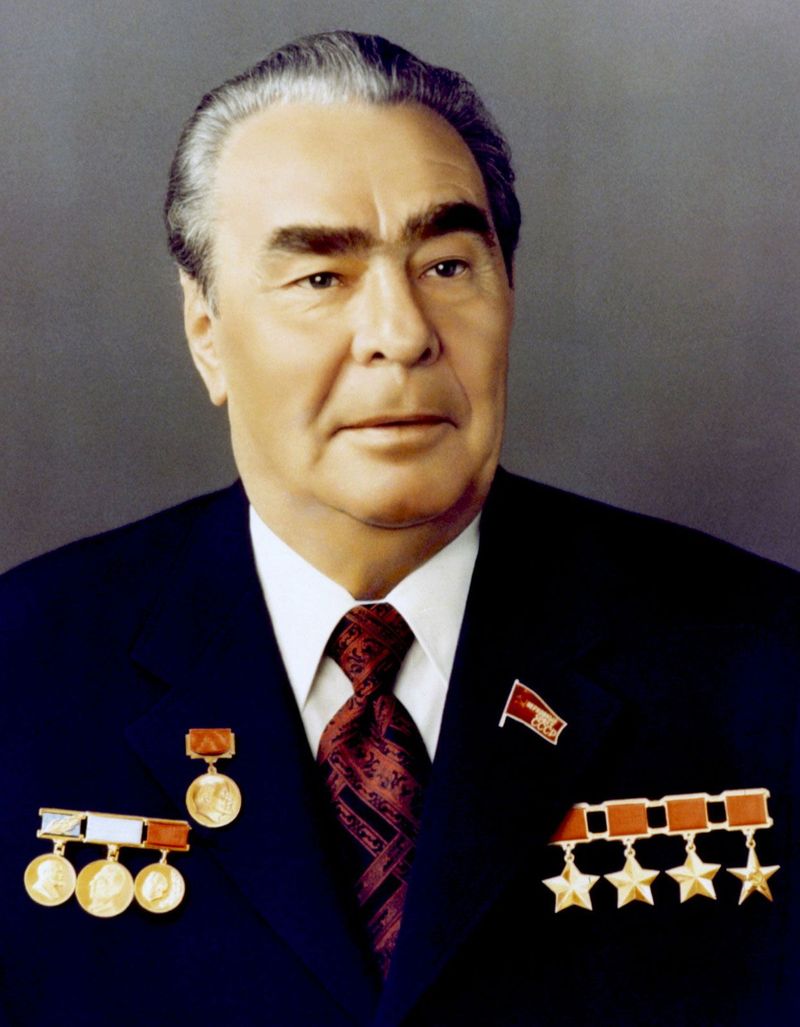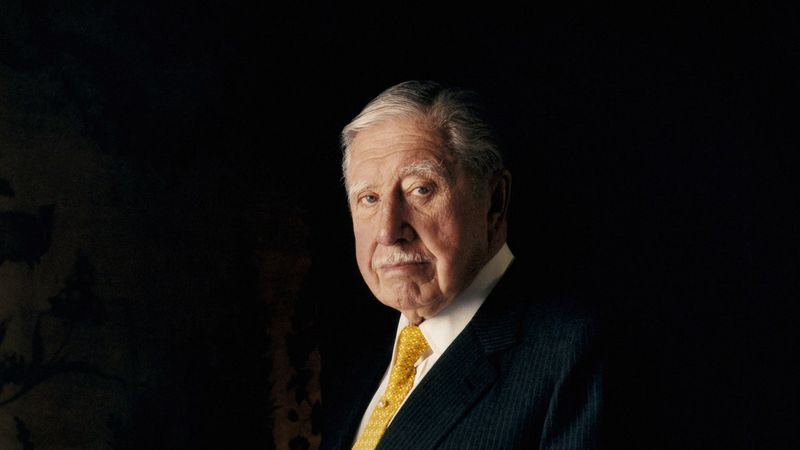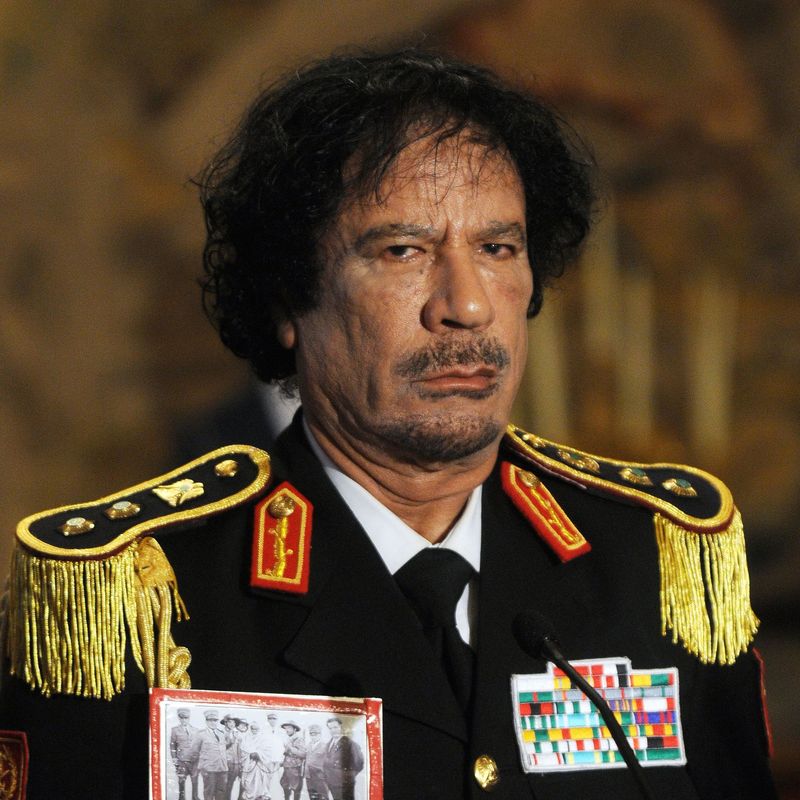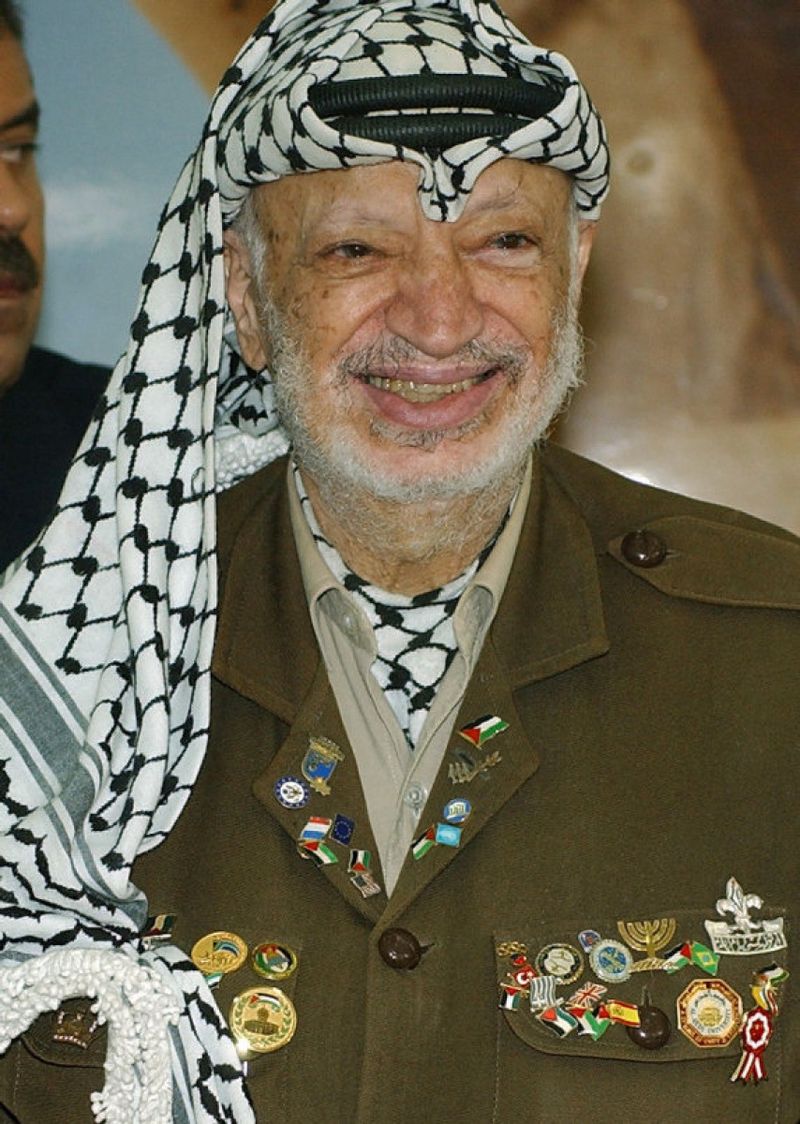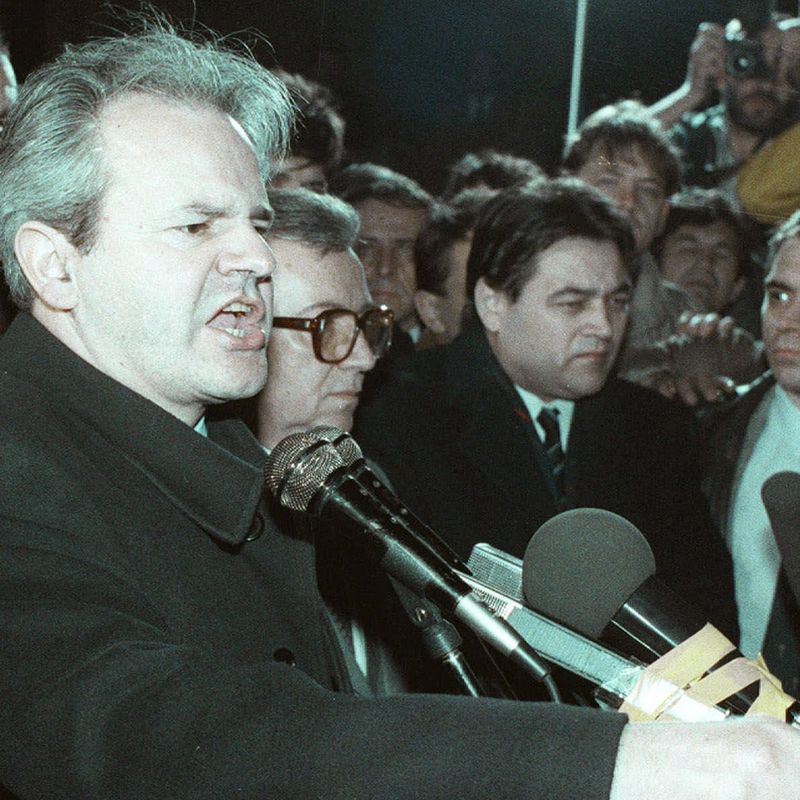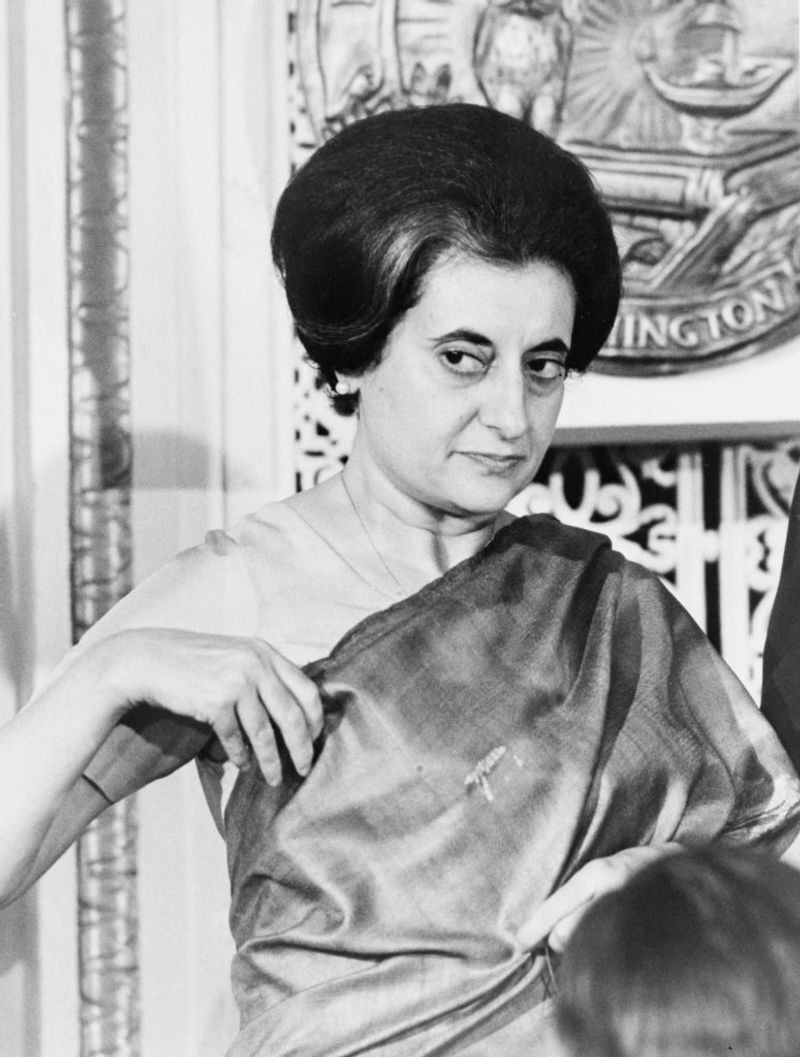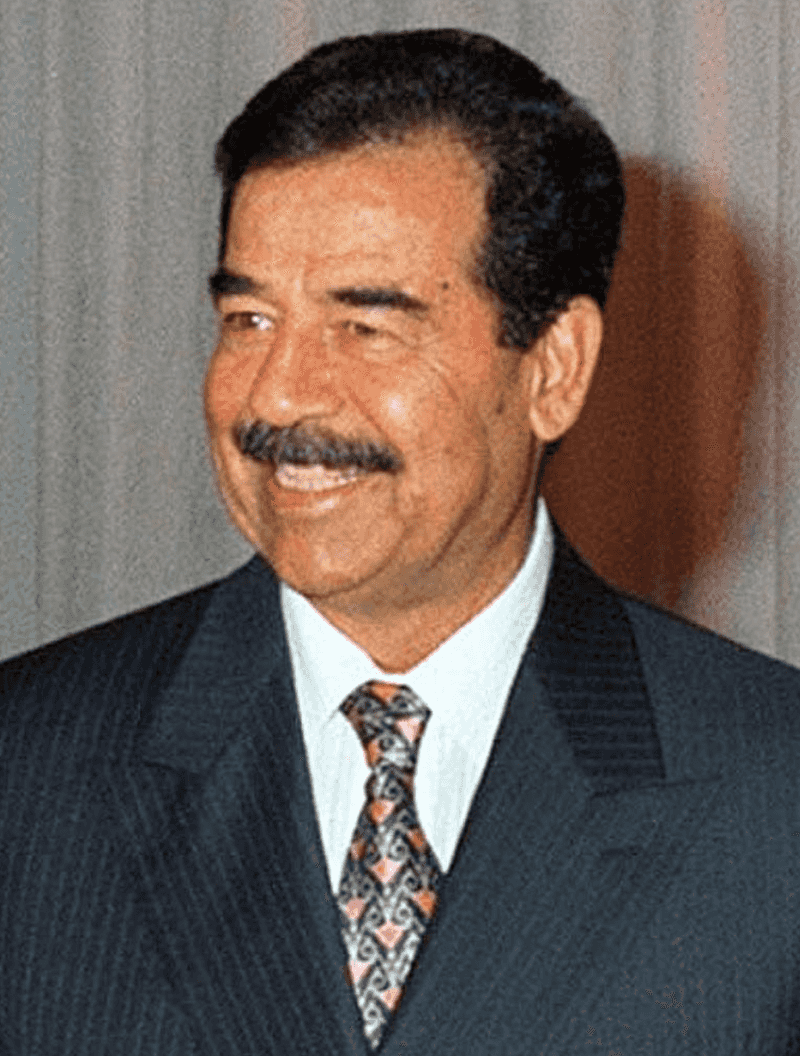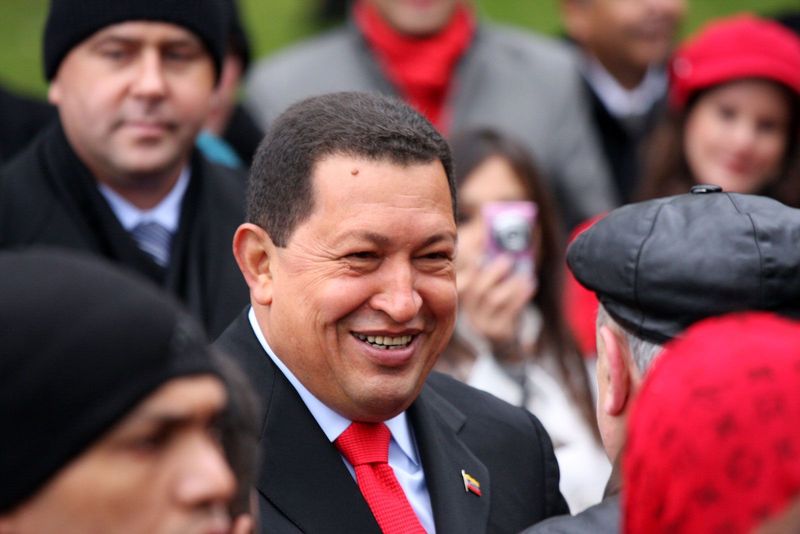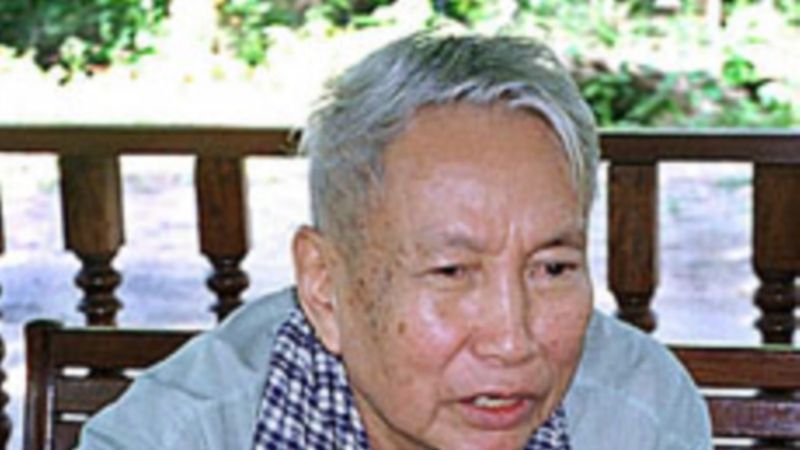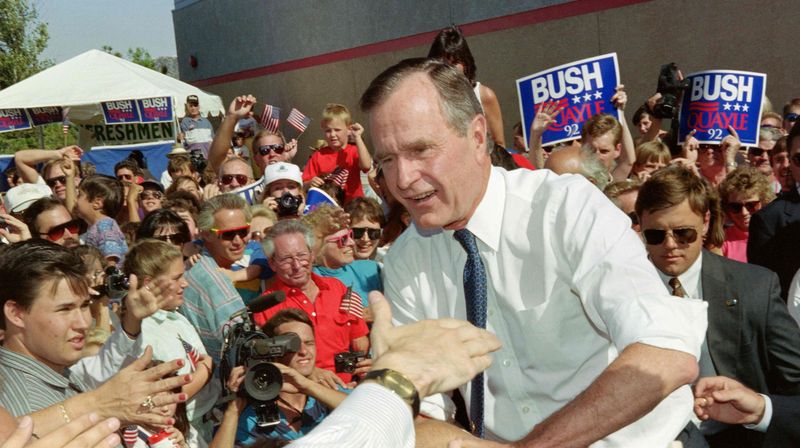The era from 1960 to 2000 was marked by significant political upheaval and transformation worldwide. This period saw the rise and fall of leaders whose policies and actions left lasting impressions, often sparking intense debate.
These figures, whether viewed as champions or tyrants, played pivotal roles in shaping the political landscapes of their times. This blog explores 21 such leaders, examining their complex legacies and the dichotomy of public opinion that surrounds them.
Read on to discover the narratives of these influential individuals, whose lives continue to impact and intrigue us today.
1. Richard Nixon
Richard Nixon, the 37th President of the United States, is often remembered for the Watergate scandal. This event overshadowed much of his international diplomacy, including opening relations with China. His presidency was marked by significant accomplishments and controversies.
Nixon’s resignation in 1974 was a historic moment, as he became the first U.S. president to do so. His policies on Vietnam and domestic affairs left mixed legacies. To this day, he remains a figure of intense debate in American politics.
For some, he was a visionary; for others, his presidency was marred by deceit.
2. Margaret Thatcher
Margaret Thatcher, Britain’s first female Prime Minister, was known as the “Iron Lady” for her political toughness. Her policies of economic liberalization and privatization divided public opinion, with supporters lauding her reforms and critics denouncing heightened inequality.
Thatcher’s tenure from 1979 to 1990 reshaped Britain’s economic landscape. Her staunch anti-communism and role in the Cold War further polarized views.
Despite controversies, her leadership style and determination left a lasting legacy. Her influence on British politics endures, with debates about her impact continuing to this day.
3. Fidel Castro
Fidel Castro, the iconic Cuban revolutionary, led Cuba for nearly five decades. Known for his defiance against U.S. influence, he established a communist state that polarized opinion globally.
Castro’s social policies improved education and healthcare in Cuba, yet his regime was criticized for human rights abuses. His leadership style and resistance to Western powers earned him both admiration and condemnation.
To many, Castro was a symbol of anti-imperialism; to others, a dictator who suppressed freedom. His legacy remains complex, with supporters and critics passionately defending their perspectives.
4. Ronald Reagan
Ronald Reagan, the 40th President of the United States, was a polarizing figure known for conservative policies. His economic strategies, dubbed “Reaganomics,” aimed to reduce taxes and government intervention.
Reagan played a crucial role in ending the Cold War, yet his administration faced criticism for social welfare cuts. His charismatic communication style earned him a devoted following.
While supporters credit him with revitalizing the American economy, detractors argue his policies widened income inequality. Reagan’s presidency continues to evoke strong opinions, reflecting the lasting impact of his leadership.
5. John F. Kennedy
John F. Kennedy, the 35th President of the United States, left a lasting impact despite his brief tenure. Known for his charismatic leadership, Kennedy championed civil rights and space exploration.
His handling of the Cuban Missile Crisis is often praised, but his assassination in 1963 left many questions unanswered. His presidency is remembered for its idealism and vision.
While admired for his inspirational speeches, critics point to his mixed achievements. Kennedy’s legacy remains a tapestry of hope and controversy, capturing the imagination of generations to come.
6. Lyndon B. Johnson
Lyndon B. Johnson, the 36th U.S. President, is renowned for his domestic agenda, the “Great Society.” His policies aimed at eliminating poverty and racial injustice.
However, his escalation of the Vietnam War overshadowed domestic successes. Johnson’s presidency saw landmark legislation, such as the Civil Rights Act, but also deepened societal divisions.
His legacy is a paradox, with achievements in social reform often clouded by war-related controversies. For some, he was a champion of social justice; for others, his foreign policy decisions remain contentious.
7. Henry Kissinger
Henry Kissinger, a key U.S. diplomat and political advisor, was instrumental in shaping foreign policy during the Nixon and Ford administrations. He is credited with détente and opening diplomatic relations with China.
His role in the Vietnam War and controversial decisions, such as bombing Cambodia, sparked global debate. Kissinger’s realpolitik approach defined an era of American diplomacy.
While praised for strategic insights, he faces criticism for human rights implications. His legacy remains divisive, with discussions about his influence continuing to resonate in international relations.
8. Mikhail Gorbachev
Mikhail Gorbachev, the last leader of the Soviet Union, introduced reforms like glasnost and perestroika. His policies aimed to revitalize the Soviet economy and promote openness.
These changes inadvertently led to the Soviet Union’s dissolution, sparking mixed reactions. Gorbachev’s role in ending the Cold War is celebrated, yet some blame him for the loss of Soviet power.
His legacy is marked by transformative change and controversy. While hailed as a peacemaker, others view his leadership as a catalyst for economic hardship and instability.
9. Leonid Brezhnev
Leonid Brezhnev led the Soviet Union for 18 years, marking an era of stability and stagnation. His tenure saw the expansion of Soviet influence, yet also economic decline.
Brezhnev’s policies were characterized by military buildup and limited reform, sparking mixed opinions. His leadership style fostered a period known as the Brezhnev Stagnation.
While some admire his focus on stability, others criticize the lack of innovation. Brezhnev’s era remains a topic of debate, symbolizing both strength and stagnation within the Soviet regime.
10. Augusto Pinochet
Augusto Pinochet, the Chilean military dictator, led a coup in 1973, overthrowing a democratically elected government. His regime was marked by human rights abuses and economic reforms.
Pinochet’s market-oriented policies stabilized Chile’s economy but came at a high human cost. His leadership was characterized by authoritarian control and suppression of opposition.
To some, he brought economic progress; to others, his rule was an era of terror and oppression. Pinochet’s legacy remains deeply divisive, reflecting the complexities of authoritarian governance.
11. Nelson Mandela
Nelson Mandela, a symbol of freedom and reconciliation, played a pivotal role in dismantling apartheid in South Africa. His leadership emphasized forgiveness and unity, earning global admiration.
Mandela’s imprisonment for 27 years and subsequent presidency highlight his commitment to justice and equality. His ability to bridge divides sets him apart as an iconic leader.
While universally lauded for his moral integrity, some debate his economic policies’ effectiveness. Mandela’s legacy as a champion of human rights continues to inspire movements for justice worldwide.
12. Muammar Gaddafi
Muammar Gaddafi ruled Libya for over four decades, leading with a mix of revolutionary zeal and authoritarian control. His regime was marked by ambitious projects and controversial human rights practices.
Gaddafi’s vision for a “United States of Africa” and funding of liberation movements earned him both allies and adversaries. His leadership ended in a violent uprising in 2011.
While some admire his Pan-Africanist ideals, others criticize his oppressive rule. Gaddafi’s complex legacy reflects the challenges of leadership in a volatile world.
13. Yasser Arafat
Yasser Arafat was a key figure in the Palestinian struggle for self-determination. As the leader of the Palestine Liberation Organization, he became a symbol of resistance against Israeli occupation.
Arafat’s diplomatic efforts earned him the Nobel Peace Prize, yet his leadership faced criticism for political infighting and corruption. His complex relationship with Israel was a focal point of his tenure.
His legacy is one of conflicting narratives, seen as a freedom fighter by some and a divisive figure by others. Arafat’s impact on Middle Eastern politics remains profound.
14. Slobodan Milošević
Slobodan Milošević, the Serbian leader, was central to the Yugoslav Wars of the 1990s. His nationalist policies and involvement in ethnic conflicts earned him both support and condemnation.
Milošević’s trial for war crimes highlighted his controversial legacy, and his leadership fueled tensions in the Balkans. His role in the breakup of Yugoslavia remains a contentious topic.
While some view him as a defender of Serb interests, others see him as a key instigator of regional instability. His legacy is a complex interplay of nationalism and conflict.
15. Indira Gandhi
Indira Gandhi, India’s first female Prime Minister, served with a blend of charisma and authoritarianism. Her tenure included significant economic reforms and centralization of power.
The Emergency period from 1975 to 1977 is a controversial chapter in her leadership, marked by curtailed freedoms. Her assassination in 1984 was a pivotal moment in Indian history.
Admired for her strong leadership and criticized for her authoritarian streak, Gandhi’s legacy is a study in contrasts. Her impact on Indian politics continues to influence the nation’s trajectory.
16. Saddam Hussein
Saddam Hussein, the former President of Iraq, was a figure of immense power and controversy. His regime was characterized by brutal suppression and ambitious infrastructure projects.
Hussein’s wars with Iran and Kuwait drew international condemnation, and his leadership ended with the U.S. invasion in 2003. His execution marked the end of an era in Iraqi politics.
Some view him as a stabilizing force in a volatile region, while others condemn his oppressive regime. His legacy remains a complex narrative of power and brutality.
17. Ayatollah Khomeini
Ayatollah Khomeini was the architect of the 1979 Iranian Revolution, establishing an Islamic Republic. His leadership marked a shift from Western influence to religious governance.
Khomeini’s policies transformed Iranian society, creating a legacy of religious conservatism. His role in the Iran-Iraq War further polarized opinions.
While hailed as a spiritual leader by supporters, critics view his policies as repressive. Khomeini’s influence on Iran’s political landscape endures, continuing to shape its identity and policies.
18. Hugo Chávez
Hugo Chávez, the Venezuelan leader, was known for his charismatic populism and socialist policies. His leadership saw significant social reforms, yet also sparked economic challenges.
Chávez’s anti-U.S. rhetoric and efforts to empower the poor made him a controversial figure. His presidency was marked by both fervent support and vehement opposition.
While praised for reducing inequality, critics argue his policies led to economic instability. Chávez’s legacy remains a subject of debate, reflecting the complexities of populist leadership.
19. Robert Mugabe
Robert Mugabe led Zimbabwe from independence to authoritarian rule, with a legacy marked by liberation and economic turmoil. His land reform policies sparked international debate and economic decline.
Mugabe’s leadership style was both admired for anti-colonial stances and criticized for human rights abuses. His tenure saw the transformation of Zimbabwe’s political landscape.
While hailed as a liberation hero by some, others see him as a dictator who led Zimbabwe into crisis. Mugabe’s complex legacy continues to influence African politics and history.
20. Pol Pot
Pol Pot, leader of the Khmer Rouge, is infamous for Cambodia’s genocide. His regime from 1975 to 1979 led to the deaths of millions.
His vision of agrarian socialism resulted in extreme measures and societal collapse. Pol Pot’s leadership is a symbol of brutal totalitarianism.
While some might argue he sought a radical transformation, his methods are universally condemned. His legacy is a stark reminder of the horrors of unchecked power.
21. George H.W. Bush
George H.W. Bush, the 41st U.S. President, played a significant role in international relations as the Cold War ended. His leadership was marked by diplomatic successes and domestic challenges.
Bush’s policies on foreign intervention and economic management faced mixed reception. His tenure included the Gulf War and efforts to promote global stability.
Admired for his diplomatic skills, critics argue his economic policies lacked impact. Bush’s presidency is remembered for navigating a transformative era in world history.
